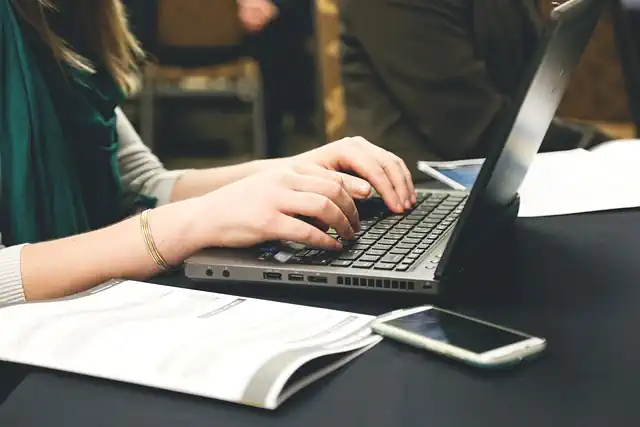Unique Things I’ve Learned About Money: Insights from Personal Experience
Throughout my life, I have learned many unique things about money that have helped me understand its value, earn it, manage it, save it, invest it, and use it in my relationships, health, personal ethics, and the modern world. These lessons have not only helped me avoid financial mistakes but also achieve financial independence and success.
One of the most important things I’ve learned about money is that its value goes beyond its purchasing power. Money can buy you time, experiences, opportunities, and peace of mind. It can also help you support causes you believe in, help others in need, and leave a legacy for future generations. Understanding the true value of money has helped me prioritize my spending, saving, and investing goals and make more informed financial decisions.
Another lesson I’ve learned about money is that earning it requires hard work, creativity, and resilience. Whether you are working a job, running a business, or pursuing a passion, you need to be persistent, adaptable, and innovative to increase your income and build your wealth. Managing your expenses, debts, and taxes is also crucial to maximizing your earnings and minimizing your financial risks. By developing a growth mindset and a strong work ethic, I have been able to overcome financial challenges and achieve my financial goals.
Key Takeaways
- Understanding the true value of money goes beyond its purchasing power and includes time, experiences, opportunities, and impact.
- Earning money requires hard work, creativity, and resilience, as well as managing your expenses, debts, and taxes.
- Learning from financial mistakes, pursuing financial independence, and aligning your financial decisions with your personal ethics can lead to financial success and fulfillment.
Understanding Money’s Value
The Power of Money
Money is a powerful tool that can be used to achieve many things in life. It can give you the power to make decisions, take risks, and pursue your dreams. With money, you can invest in your future, start a business, or buy a home. It can also give you the power to help others and make a positive impact on the world.
However, it’s important to remember that money is not the only source of power in life. There are many other factors that contribute to a person’s power, such as knowledge, skills, and relationships. Money can help you achieve your goals, but it’s not the only thing that matters.
Money and Freedom
Money can also give you the freedom to live the life you want. With financial stability, you can choose to work less, travel more, or pursue your passions. It can also give you the freedom to make choices without worrying about financial constraints.
However, it’s important to remember that money is not the only source of freedom in life. There are many other factors that contribute to a person’s freedom, such as personal values, relationships, and mental health. Money can help you achieve financial freedom, but it’s not the only thing that matters.
Money and Happiness
Money can also contribute to happiness in life, but it’s not the only factor. Studies have shown that money can increase happiness up to a certain point, but beyond that point, more money does not necessarily lead to more happiness.
It’s important to remember that happiness is a complex emotion that is influenced by many factors, such as relationships, health, and personal values. Money can contribute to happiness by providing financial security and the ability to pursue one’s passions, but it’s not the only thing that matters.
In conclusion, understanding the value of money is important for achieving financial success and happiness in life. However, it’s important to remember that money is not the only source of power, freedom, or happiness in life. By balancing financial goals with personal values and relationships, you can achieve a fulfilling and meaningful life.
Earning Money
When it comes to earning money, there are a few things I’ve learned over the years that have helped me increase my income and achieve financial stability. In this section, I’ll cover the main ways I’ve earned money and provide some tips on how to make the most of each opportunity.
Work and Money
The most common way people earn money is through work. Whether you’re an employee or a freelancer, having a job is a reliable way to earn a steady income. When I first started working, I quickly learned that the key to earning more money was to work hard, be reliable, and constantly improve my skills. By doing so, I was able to earn promotions and pay raises over time.
If you’re looking to earn more money at your job, here are a few tips:
- Take on additional responsibilities: If you’re a reliable employee, your boss may be willing to give you more responsibilities and pay you more.
- Improve your skills: Attend training sessions, take online courses, or read books to improve your skills and become more valuable to your employer.
- Negotiate your salary: When you’re offered a job or a promotion, don’t be afraid to negotiate your salary. Do your research and find out what others in your industry are earning to ensure you’re being paid fairly.
Side Jobs and Money
In addition to work, side jobs can be a great way to earn extra money. Whether it’s driving for Uber, delivering food for DoorDash, or freelancing on the side, there are plenty of opportunities to earn money outside of your full-time job.
When I started my side hustle, I quickly learned that time management was key. I had to balance my full-time job with my side job, which meant working early in the morning or late at night. But the extra income was worth it.
If you’re looking to earn money on the side, here are a few tips:
- Find a job that fits your schedule: Look for side jobs that you can do on your own time, such as driving for a ride-sharing service or freelancing.
- Use your skills: If you have a particular skill, such as graphic design or writing, consider freelancing in that area to earn extra money.
- Don’t overdo it: Be careful not to take on too much work and burn yourself out. Make sure you’re still able to enjoy your free time and take care of yourself.
Business and Money
Finally, starting a business can be a great way to earn money and achieve financial independence. While it can be risky, owning your own business gives you the opportunity to earn unlimited income and be your own boss.
When I started my own business, I quickly learned that it takes a lot of hard work and dedication to be successful. But the rewards are worth it.
If you’re thinking about starting your own business, here are a few tips:
- Do your research: Make sure there’s a market for your product or service before you invest too much time and money.
- Create a business plan: A solid business plan will help you stay on track and ensure you’re making a profit.
- Be prepared to work hard: Starting a business is not easy, and it takes a lot of hard work and dedication to be successful. But if you’re willing to put in the effort, the rewards can be significant.
Managing Money
Managing money is an essential skill that everyone needs to master for financial success. Over the years, I have learned that budgeting, dealing with debt, and paying bills on time are crucial aspects of managing money. In this section, I will share my unique insights on each of these topics.
Budgeting and Planning
Creating a budget is the first step towards managing your money. The key to successful budgeting is to create a plan that works for you. I have found that it is helpful to track your expenses for a month to get a better understanding of where your money is going. Once you have a clear idea of your spending habits, you can create a realistic budget that takes into account your income and expenses.
When creating a budget, it is essential to prioritize your expenses. Start by covering your necessary expenses such as rent, utilities, and food. Then allocate funds for your other expenses such as entertainment and travel. Remember to be realistic and flexible with your budget. Life happens, and unexpected expenses can arise, so it’s essential to have some wiggle room in your budget.
Dealing with Debt
Debt can be overwhelming and stressful. However, it’s crucial to deal with it head-on to avoid further financial strain. I have learned that the best way to deal with debt is to create a plan to pay it off. Start by prioritizing your debt and paying off the highest interest debt first. Consider consolidating your debt into one loan with a lower interest rate to make it easier to manage.
It’s also essential to avoid taking on more debt while paying off your current debt. Avoid using credit cards or taking out loans unless it’s absolutely necessary. Remember that every little bit counts, so even small payments towards your debt can make a big difference in the long run.
Paying Bills
Paying bills on time is crucial for maintaining good credit and avoiding late fees. I have found that setting up automatic payments can be a helpful way to ensure that bills are paid on time. It’s also essential to keep track of your bills and due dates to avoid any surprises.
If you’re struggling to pay your bills, reach out to your creditors to see if they offer any payment plans or assistance programs. Many companies are willing to work with you to find a solution that works for both parties.
In conclusion, managing money is a crucial skill for financial success. By creating a budget, dealing with debt, and paying bills on time, you can take control of your finances and achieve your financial goals.
Saving Money
Saving money is an important aspect of personal finance that I have learned over the years. By saving and investing, I am able to secure my financial future and achieve my long-term goals. In this section, I will discuss the importance of having an emergency fund and a high-yield savings account.
Importance of Emergency Fund
I have learned that having an emergency fund is crucial to my financial well-being. An emergency fund is a pool of money that I set aside to cover unexpected expenses such as medical bills, car repairs, or job loss. Without an emergency fund, I would have to rely on credit cards or loans to cover these expenses, which can lead to debt and financial stress.
To build an emergency fund, I set aside a portion of my income each month and keep it in a separate savings account. I aim to have at least three to six months’ worth of living expenses in my emergency fund. This way, if an unexpected expense arises, I can cover it without dipping into my other savings or investments.
High-Yield Savings Account
I have also learned the importance of having a high-yield savings account. A high-yield savings account is a type of savings account that offers a higher interest rate than a traditional savings account. By keeping my savings in a high-yield savings account, I can earn more interest on my money and grow my savings faster.
When choosing a high-yield savings account, I look for an account with a competitive interest rate and no monthly fees. I also make sure that the account is FDIC-insured, which means that my deposits are protected up to $250,000 in case the bank fails.
Overall, by having an emergency fund and a high-yield savings account, I am able to save money and achieve my financial goals. It takes discipline and commitment to save money, but the rewards are worth it in the end.
Investing Money
Investing money is one of the best ways to grow wealth, but it can also be risky. Over the years, I have learned that investing requires knowledge, patience, and a long-term perspective. Here are some of the things I’ve learned about investing money.
Investing in Stocks
Investing in stocks is a great way to build wealth over time. However, it is important to do your research and understand the company you are investing in. I have found that it is best to invest in companies with a strong track record of performance and a competitive advantage in their industry.
One strategy I use is to invest in index funds, which are a type of mutual fund that tracks a specific market index, such as the S&P 500. This allows me to diversify my portfolio and reduce risk.
Real Estate Investment
Real estate investment is another way to build wealth over time. However, it requires a significant amount of capital and expertise. I have learned that it is important to do your research and understand the local real estate market before investing in property.
One strategy I use is to invest in real estate investment trusts (REITs), which are companies that own and manage income-producing real estate properties. This allows me to invest in real estate without the hassle of managing properties myself.
Investing in Self
Investing in yourself is just as important as investing in stocks or real estate. This includes things like education, skills development, and personal growth. I have found that investing in myself has helped me to increase my earning potential and achieve my financial goals.
One strategy I use is to attend conferences, workshops, and seminars related to my field of work. This allows me to learn new skills and network with other professionals in my industry.
Overall, investing money requires knowledge, patience, and a long-term perspective. By investing in stocks, real estate, and yourself, you can build wealth over time and achieve your financial goals.
Money and Relationships
Money can be a sensitive topic, and it can affect our relationships with others. Over the years, I’ve learned some valuable lessons about money and relationships that I’d like to share. In this section, I’ll discuss money and love, money and friends and family, and discussing finance with a partner.
Money and Love
Money can have a significant impact on romantic relationships. It’s important to be open and honest with your partner about your financial situation, including your income, debts, and spending habits. Money can be a source of stress and conflict in a relationship, so it’s crucial to communicate and work together to create a financial plan that works for both of you.
In my experience, it’s important to be on the same page about financial goals and priorities. For example, if one partner wants to save for a down payment on a house while the other wants to travel the world, it can lead to disagreements and tension. It’s essential to find a compromise and work towards shared goals.
Money and Friends and Family
Money can also affect our relationships with friends and family. It’s common for people to lend money to loved ones, but it’s important to approach these situations with caution. Loaning money can strain relationships, so it’s essential to establish clear expectations and boundaries. In my experience, it’s best to avoid lending money if possible and instead offer non-financial support, such as helping with job searches or providing emotional support.
In some cases, money can also be a source of tension between family members, especially when it comes to inheritance and estate planning. It’s important to have open and honest conversations about these topics to avoid misunderstandings and conflicts down the line.
Discussing Finance with Partner
Discussing finances with a partner can be challenging, but it’s essential for a healthy relationship. In my experience, it’s best to approach these conversations with an open mind and a willingness to listen. It’s also important to be honest about your financial situation and goals, even if it’s uncomfortable.
When discussing finances with a partner, it can be helpful to establish clear expectations and boundaries. For example, you might agree to split expenses evenly or create a joint budget. It’s also important to be flexible and willing to compromise to find a solution that works for both of you.
Overall, money can have a significant impact on our relationships with others. It’s important to approach these situations with caution and communicate openly and honestly to avoid misunderstandings and conflicts.
Money and Health
As I’ve learned more about money, I’ve come to realize that it’s closely tied to our health. In this section, I’ll explore some of the ways that money affects our physical and mental well-being.
Financial Stress
One of the most obvious ways that money affects our health is through financial stress. When we’re worried about money, it can cause a lot of anxiety and even physical symptoms like headaches and stomachaches. This stress can take a toll on our mental health, too, leading to depression, mood swings, and other issues.
To combat financial stress, I’ve found that it’s important to have a solid financial plan in place. This might include creating a budget, building an emergency fund, and investing in retirement accounts. By having a plan, you can feel more in control of your finances and reduce your stress levels.
Insurance and Health
Another way that money and health are connected is through insurance. Having good health insurance can help you access the medical care you need without worrying about the cost. On the other hand, not having insurance can lead to financial stress and even bankruptcy if you’re faced with a major medical expense.
When it comes to insurance, it’s important to shop around and compare policies to find the best coverage for your needs. You might also consider investing in supplemental insurance, like dental or vision coverage, to ensure that all of your health needs are covered.
Overall, I’ve learned that taking care of your finances can have a big impact on your health. By reducing financial stress and having good insurance coverage, you can protect your physical and mental well-being and enjoy a happier, healthier life.
Financial Mistakes and Learnings
Common Financial Mistakes
Throughout my financial journey, I’ve made my fair share of mistakes. However, I’ve learned that making mistakes is a natural part of the learning process. One of the most common financial mistakes that I made was not having a budget. Not having a budget made it difficult for me to track my spending and save money. I’ve since learned that creating a budget is essential to managing my finances effectively.
Another mistake that I made was not saving enough money for emergencies. I learned this lesson the hard way when I had a medical emergency and didn’t have enough money to cover the costs. I now make sure to have an emergency fund with at least six months of living expenses to avoid any financial stress in the future.
Paying Off Debt
Paying off debt can be a daunting task, but it’s an essential step in achieving financial freedom. One mistake I made when paying off debt was not prioritizing high-interest debt. I learned that focusing on high-interest debt first can save me money in the long run. I also learned that paying more than the minimum payment can help me pay off my debt faster.
Another thing I’ve learned about paying off debt is that it’s important to have a plan. I created a debt payoff plan that included paying off my highest interest debt first and then moving on to the next one. Having a plan helped me stay motivated and on track.
Dealing with Credit Card Debt
Credit card debt can be a significant financial burden, and I’ve made my fair share of mistakes when dealing with it. One mistake I made was only paying the minimum payment on my credit card each month. I learned that paying only the minimum payment can lead to more debt in the long run. I now make sure to pay more than the minimum payment each month to pay off my credit card debt faster.
Another mistake I made was not understanding the terms and conditions of my credit card. I didn’t realize that my credit card had a high-interest rate, and I ended up paying more in interest than I needed to. I now make sure to read the terms and conditions of any credit card I use and understand the interest rate and any fees associated with it.
In conclusion, I’ve learned that making financial mistakes is a natural part of the learning process. However, it’s essential to learn from these mistakes and make changes to improve your financial situation. By creating a budget, prioritizing high-interest debt, having a debt payoff plan, and understanding credit card terms and conditions, I’ve been able to improve my financial situation and achieve financial freedom.
Financial Independence and Success
Building Wealth
One of the unique things I’ve learned about money is that building wealth is not just about making more money, but also about managing it effectively. To achieve financial independence and success, it’s important to develop a sound financial plan that includes saving, investing, and managing debt.
One of the best ways to build wealth is to start early and invest consistently. By investing in a diversified portfolio of stocks, bonds, and other assets, you can benefit from the power of compounding and grow your wealth over time. It’s also important to be disciplined and avoid making impulsive decisions, such as buying and selling stocks based on short-term market fluctuations.
Financial Goals
Setting financial goals is another important aspect of achieving financial independence and success. By setting clear and measurable goals, you can stay focused and motivated, and track your progress over time. Whether your goal is to pay off debt, save for a down payment on a house, or achieve a certain level of retirement income, having a plan in place can help you stay on track and achieve your objectives.
Role of Financial Advisor
While it’s possible to manage your finances on your own, working with a financial advisor can be a valuable resource for achieving financial independence and success. A financial advisor can help you develop a personalized financial plan based on your unique goals and circumstances, and provide guidance on investment decisions, tax planning, and other important financial matters.
When choosing a financial advisor, it’s important to look for someone who is experienced, knowledgeable, and trustworthy. It’s also important to understand how your advisor is compensated, and to ensure that their interests align with yours.
In conclusion, achieving financial independence and success requires discipline, planning, and a long-term perspective. By focusing on building wealth, setting clear financial goals, and working with a trusted advisor, you can take control of your finances and achieve your dreams.
Money and Personal Ethics
As I’ve learned more about money, I’ve come to realize that it’s not just about numbers and figures. Personal ethics play a huge role in how we manage our finances. In this section, I’ll explore two important aspects of money and personal ethics: giving and donating, and balancing money and life.
Giving and Donating
Giving back to the community is an important part of my personal ethics. I believe that we have a responsibility to help those who are less fortunate than us. One way to do this is by donating money to charities and non-profit organizations.
When deciding which charities to donate to, I always do my research to make sure that my money is going to a good cause. I look for organizations that are transparent about how they use their funds and have a proven track record of making a difference in the world. I also try to choose causes that are close to my heart, such as education or environmental conservation.
In addition to donating money, I also try to give back in other ways. For example, I volunteer my time at local organizations and events. This allows me to make a direct impact in my community and see the results of my efforts firsthand.
Balancing Money and Life
While it’s important to be financially responsible, I’ve learned that money shouldn’t be the only focus in life. Balancing money and life is crucial for maintaining a healthy and happy lifestyle.
One way to achieve this balance is by creating a budget that allows for both saving and spending. I prioritize saving for my future, but I also make sure to set aside money for things that bring me joy, such as travel or hobbies.
I also try to focus on experiences rather than material possessions. Instead of buying the latest gadgets or designer clothes, I invest in experiences that create lasting memories. This can include things like travel, concerts, or even just spending time with loved ones.
Overall, I’ve learned that personal ethics play a significant role in how we manage our finances. By giving back to the community and balancing money with life, we can create a fulfilling and meaningful financial life.
Money in the Modern World
As we navigate through the modern world, it’s important to understand how money is affected by various factors. In this section, I will discuss how the pandemic and travel impact our finances.
Money and Pandemic
The COVID-19 pandemic has changed the way we live our lives, and it has also had a significant impact on our finances. Many people have lost their jobs, and businesses have closed down, leaving people struggling to make ends meet.
On the other hand, the pandemic has also led to an increase in remote work, which has allowed people to save money on commuting and other expenses. Additionally, the government has introduced various stimulus packages to help those who have been affected by the pandemic.
It’s important to be mindful of our spending during this time and make sure we have a solid financial plan in place. This includes having an emergency fund and cutting back on unnecessary expenses.
Money and Travel
Traveling is a great way to explore new places and experience different cultures, but it can also be expensive. It’s important to budget for travel expenses and plan ahead to avoid overspending.
One way to save money on travel is to use travel rewards credit cards. These cards offer rewards such as airline miles and hotel points that can be used to offset travel expenses.
Another way to save money on travel is to be flexible with your travel dates. Traveling during off-peak times can often result in significant savings.
In conclusion, understanding how the pandemic and travel impact our finances is crucial in today’s world. By being mindful of our spending and planning ahead, we can make the most of our money and enjoy our experiences to the fullest.
My Articles:
From Side Hustle to Full-Time Income: A Personal Journey of Success
My Journey to Financial Independence: How I Achieved Financial Freedom and You Can Too!
Money and Life Lessons: Insights from a Personal Finance Expert






